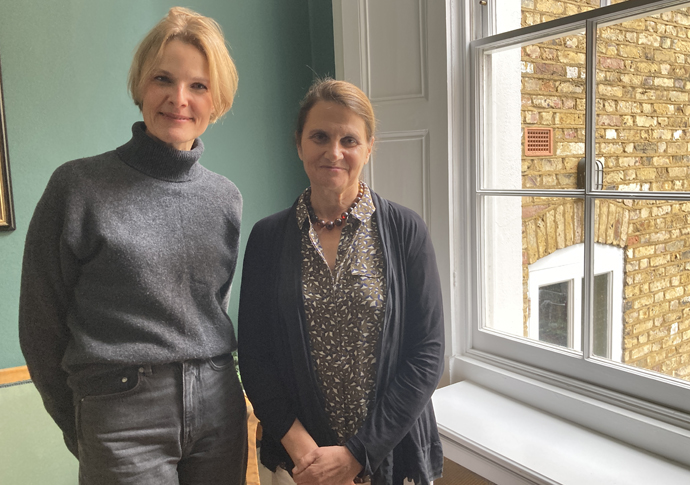Planning rules stand in the way of beating the draughts, Town Hall told
Friday, 7th October 2022 — By Anna Lamche

Anne-Marie Huby and Leyla Boulton
“ABSURD” planning rules are blocking people from making their old, draughty homes ready for the climate emergency, a campaign group has warned.
Founded by journalist Leyla Boulton and businesswoman Anne-Marie Huby, Green Conservation is a group fighting to change the planning laws that govern Grade II-listed and conservation area homes.
There are 42 conservation areas and over 1000 grade II listed buildings in the borough, according to British Listed Buildings. These homes are among the most energy-inefficient in Islington, which has declared its aim to reach net zero by 2030.
These older, more draughty homes are subject to tighter planning restrictions, often leaving homeowners unable to add “sensitive” double glazing, heat pumps and solar panels to their buildings.
“It makes no sense at all for us to be spending loads of money on energy that is going out the window, out the chimney, out the door,” Ms Boulton said.
“It just seemed absurd, especially given Islington’s great tough stand on the need to tackle climate change.”
The group argues “sensitive” eco-friendly measures will not undermine the architectural and historical value of protected buildings.
“If handled sensitively, [eco-friendly measures] really wouldn’t take away from the beauty of the houses,” Ms Huby said.
Frustrated with the lack of progress, some homeowners in Islington have resorted to making eco-friendly adaptations to their homes and applying for retrospective planning permission.
The group is calling for the council to be “proactive” and learn from Kensington and Chelsea council, which has recently adapted its planning rules to make older homes more energy-secure.
Green Conservation is now gathering signatures as part of a petition calling on the council to allow for the installation of solar panels, heat pumps and double glazing.